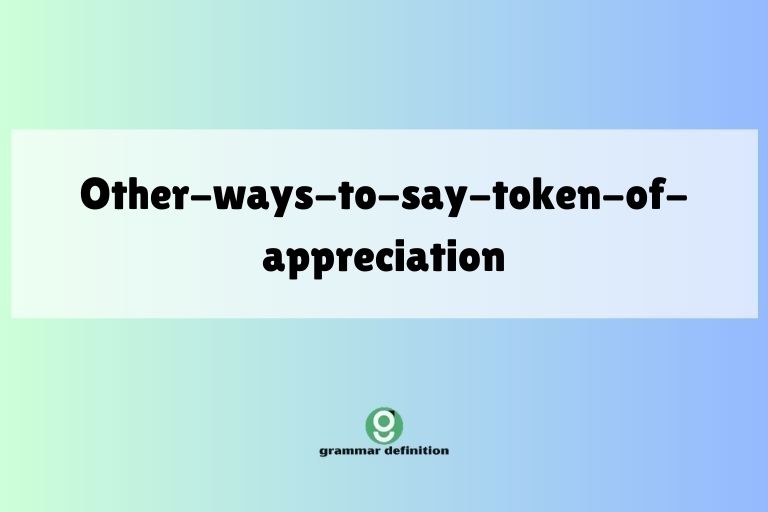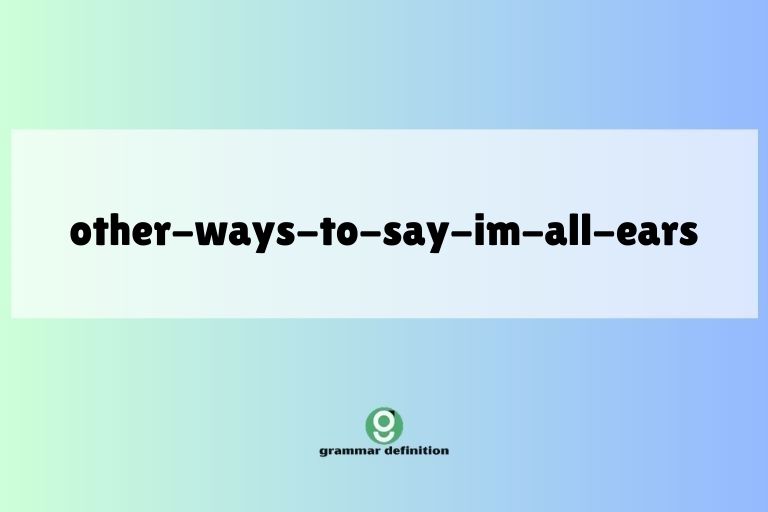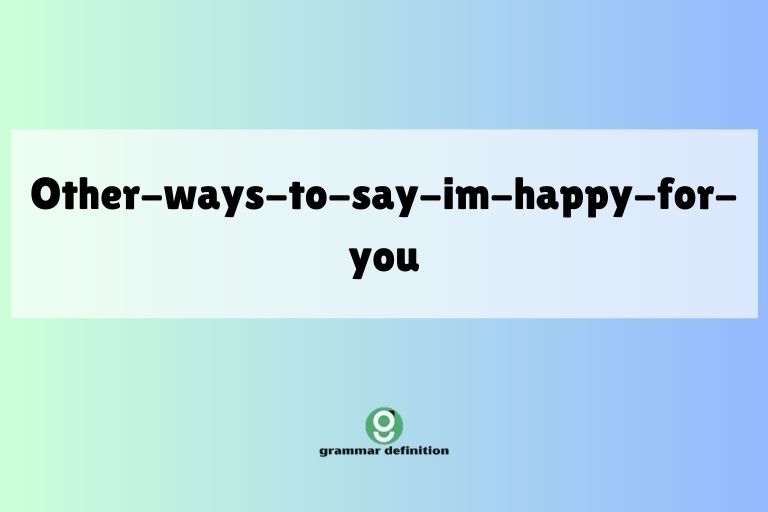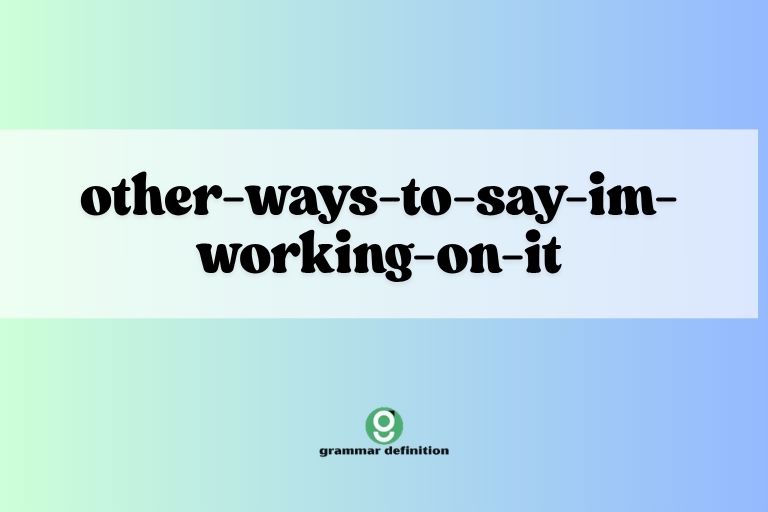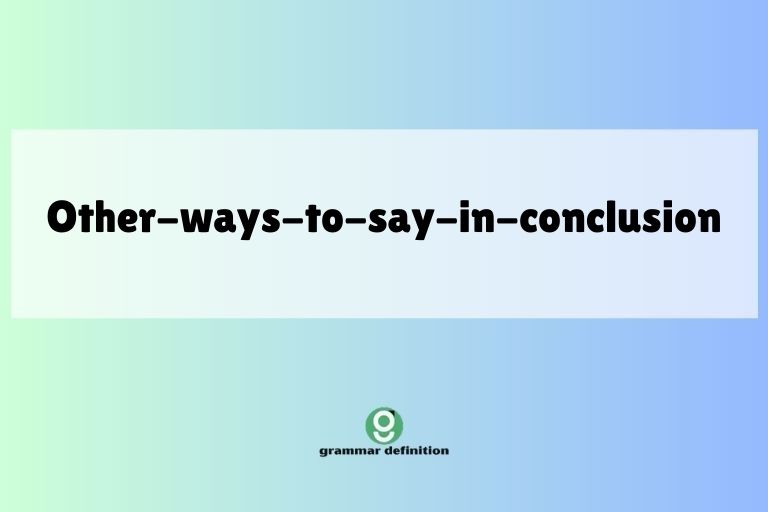Beyond “I Understand”: Alternatives for Expressing Empathy
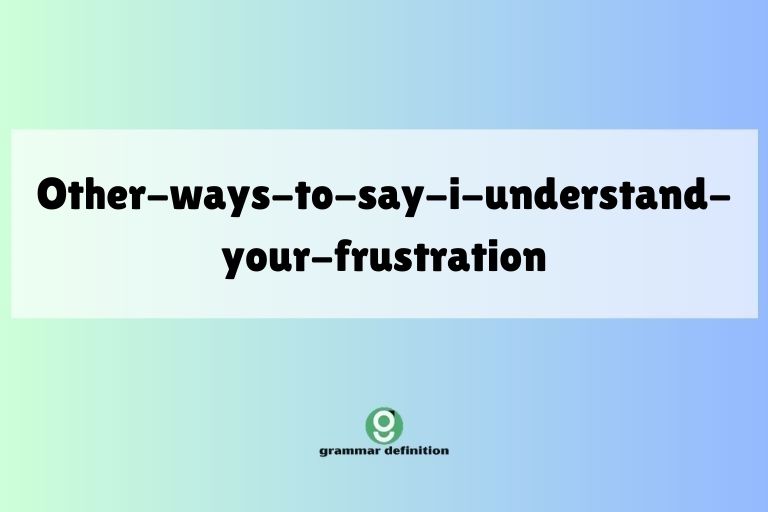
Expressing empathy is a crucial skill in effective communication, especially when dealing with someone experiencing frustration. While saying “I understand your frustration” is a common response, it can sometimes sound insincere or dismissive if not followed by genuine support.
This article explores a wide range of alternative phrases and approaches to convey empathy and understanding more effectively. Mastering these alternatives will enhance your ability to connect with others, de-escalate tense situations, and build stronger relationships in both personal and professional contexts.
Whether you’re a student, a professional, or simply someone looking to improve their communication skills, this guide will provide you with the tools and knowledge to express empathy more authentically and impactfully.
This article aims to provide a comprehensive guide for anyone looking to enhance their empathetic communication skills. By understanding the nuances of different phrases and their appropriate contexts, you can significantly improve your interactions with others and build stronger relationships.
It is designed to be accessible for learners of all levels, from beginners to advanced English speakers.
Table of Contents
- Introduction
- Defining Empathy and Its Importance
- Structural Breakdown of Empathetic Phrases
- Types of Empathetic Responses
- Examples of Empathetic Phrases
- Usage Rules for Empathetic Communication
- Common Mistakes to Avoid
- Practice Exercises
- Advanced Topics in Empathetic Communication
- Frequently Asked Questions
- Conclusion
Defining Empathy and Its Importance
Empathy is the ability to understand and share the feelings of another person. It involves recognizing their emotional state, acknowledging their perspective, and responding in a way that demonstrates your understanding and care. It’s more than just sympathy – feeling sorry for someone – but rather, it’s about putting yourself in their shoes and experiencing their emotions as if they were your own.
Empathy is crucial for effective communication and building strong relationships. It allows us to connect with others on a deeper level, fostering trust, understanding, and mutual respect.
In professional settings, empathy can improve teamwork, customer service, and leadership. In personal relationships, it strengthens bonds, resolves conflicts, and promotes emotional well-being.
Without empathy, communication can become transactional and impersonal, leading to misunderstandings, resentment, and damaged relationships. By developing and practicing empathy, we can create a more compassionate and supportive environment for ourselves and those around us.
Structural Breakdown of Empathetic Phrases
Empathetic phrases often follow a basic structure that includes acknowledging the other person’s feelings, validating their experience, and potentially offering support. Here’s a breakdown of the common elements:
- Acknowledgement of Feelings: This involves identifying and naming the emotion the other person is likely experiencing. Examples include: “I can see you’re frustrated,” “It sounds like you’re feeling overwhelmed,” or “You seem disappointed.”
- Validation of Experience: This step confirms that their feelings are understandable and justified, given the situation. Examples include: “That’s completely understandable,” “It makes sense that you would feel that way,” or “I would probably feel the same in your situation.”
- Offer of Support (Optional): This involves offering help or assistance, if appropriate. Examples include: “How can I help?”, “What can I do to make this easier?”, or “Let’s see if we can find a solution together.”
The structure of these phrases can vary depending on the context and the speaker’s relationship with the person experiencing frustration. However, the core elements of acknowledgement and validation are essential for conveying empathy effectively.
Types of Empathetic Responses
There are several types of empathetic responses, each serving a different purpose in conveying understanding and support. These include acknowledging feelings, validating experiences, offering support, and reflective listening.
Understanding these categories can help you choose the most appropriate response in any given situation.
Acknowledging Feelings
Acknowledging feelings involves directly identifying and naming the emotion the other person is experiencing. This shows that you are paying attention to their emotional state and recognize their feelings.
It’s a crucial first step in demonstrating empathy.
Validating Experiences
Validating experiences goes beyond simply acknowledging feelings; it confirms that the person’s feelings are understandable and justified, given the circumstances. This helps them feel heard and understood, reducing feelings of isolation or invalidation.
It’s important to remember that validating someone’s experience doesn’t necessarily mean agreeing with their actions or opinions, but rather acknowledging the legitimacy of their emotions.
Offering Support
Offering support involves actively providing assistance or help to the person experiencing frustration. This can range from practical help to emotional support, depending on the situation and the person’s needs.
Offering support demonstrates a willingness to go beyond simply understanding their feelings and actively contribute to resolving the issue.
Reflective Listening
Reflective listening involves paraphrasing and summarizing what the other person has said to ensure you understand their perspective accurately. This technique allows the speaker to feel heard and understood while also clarifying any misunderstandings.
It demonstrates active engagement and a genuine desire to comprehend their experience. Reflective listening is particularly useful in complex or emotionally charged situations.
Examples of Empathetic Phrases
Here are some examples of empathetic phrases, categorized by the type of response they represent. These examples provide a starting point for developing your own empathetic communication skills.
Acknowledging Feelings Examples
The following table provides examples of phrases that acknowledge the feelings of another person. These phrases directly address the emotions they are likely experiencing.
| Phrase | Context |
|---|---|
| “I can see that you’re frustrated.” | When someone is struggling with a task or facing a setback. |
| “It sounds like you’re feeling overwhelmed.” | When someone has a lot on their plate or is facing a difficult situation. |
| “You seem disappointed.” | When someone’s expectations haven’t been met. |
| “I sense that you’re feeling anxious about this.” | When someone is facing a stressful event or decision. |
| “You look upset.” | When someone is visibly displaying negative emotions. |
| “I hear the anger in your voice.” | When someone is speaking in an angry or agitated tone. |
| “It seems like you’re feeling helpless.” | When someone is facing a situation they feel they cannot control. |
| “You appear to be worried.” | When someone is showing signs of concern or apprehension. |
| “I get the sense that you’re feeling stressed.” | When someone is under pressure or facing deadlines. |
| “You seem discouraged.” | When someone has experienced a setback or failure. |
| “I can tell you’re feeling impatient.” | When someone is waiting for something and becoming restless. |
| “It sounds like you’re feeling resentful.” | When someone feels unfairly treated. |
| “You seem defeated.” | When someone has given up on a goal. |
| “I sense you are feeling abandoned.” | When someone feels left out or alone. |
| “You look as though you are feeling betrayed.” | When someone has been deceived or let down. |
| “I can tell you are feeling insecure about this.” | When someone lacks confidence in a situation. |
| “It seems like you’re feeling isolated.” | When someone feels disconnected from others. |
| “You appear to be feeling misunderstood” | When someone feels their point of view is not being heard. |
| “I get the sense that you are feeling neglected.” | When someone feels ignored or uncared for. |
| “You seem like you are feeling unappreciated.” | When someone feels their efforts are not being recognized. |
| “I can tell you are feeling regretful.” | When someone is experiencing remorse for past actions. |
| “It sounds like you are feeling vulnerable.” | When someone is in a position of weakness or exposure. |
| “You seem as though you are feeling skeptical.” | When someone is doubting or questioning something. |
| “I sense that you are feeling skeptical.” | When someone is doubting or questioning something. |
| “You look like you are feeling indecisive.” | When someone is struggling to make a choice. |
| “I can tell you are feeling uncertain.” | When someone is unsure about the future or a situation. |
| “It sounds like you are feeling confused.” | When someone is having difficulty understanding something. |
| “You seem like you are feeling lost.” | When someone is feeling disoriented or without direction. |
These phrases help to establish a connection by showing that you are aware of the other person’s emotional state. Remember to use them sincerely and in conjunction with other empathetic responses.
Validating Experiences Examples
The following table provides examples of phrases that validate the experiences of another person. These phrases acknowledge that their feelings are understandable and justified, given the circumstances.
| Phrase | Context |
|---|---|
| “That’s completely understandable.” | General validation in response to any expression of frustration. |
| “It makes sense that you would feel that way.” | When someone is reacting to a difficult situation. |
| “I would probably feel the same in your situation.” | When empathizing with someone facing a similar challenge. |
| “Anyone would be frustrated by that.” | When the cause of frustration is clearly unreasonable or unfair. |
| “It’s natural to feel disappointed when that happens.” | When someone’s expectations are not met. |
| “I can see why you’re upset.” | When the reason for someone’s negative emotions is evident. |
| “That sounds incredibly difficult.” | When someone is describing a challenging experience. |
| “It’s perfectly reasonable to be angry about that.” | When someone has been wronged or treated unfairly. |
| “I understand why you’re feeling overwhelmed.” | When someone is facing a large workload or complex problem. |
| “Your reaction is completely justified.” | When someone’s response to a situation is appropriate and understandable. |
| “I can see why you’d be concerned.” | When someone is worried about a potential problem. |
| “That situation would make anyone anxious.” | When the circumstances are inherently stressful. |
| “I get why you’re feeling discouraged after that setback.” | When someone has experienced a failure or disappointment. |
| “It’s normal to feel impatient when you’re waiting for something important.” | When someone is experiencing delays or waiting on results. |
| “It’s understandable that you feel betrayed after that happened.” | When someone has been deceived or let down by someone they trusted. |
| “I can see why you’d feel insecure in that environment.” | When someone is in a situation where they lack confidence. |
| “It’s perfectly normal to feel isolated when you’re going through something like this.” | When someone is experiencing a difficult situation and feels disconnected. |
| “I understand why you’re feeling misunderstood; it sounds like you’re explaining it clearly.” | When someone is having difficulty getting their point of view across. |
| “It makes sense you feel neglected when your needs aren’t being met.” | When someone’s needs are being ignored or overlooked. |
| “It’s reasonable to feel unappreciated when your efforts aren’t recognized.” | When someone’s hard work is going unnoticed. |
| “I can understand why you’d feel regretful about your past actions.” | When someone is experiencing remorse for something they did. |
| “It’s natural to feel vulnerable when you’re in a position like that.” | When someone is in a situation where they feel exposed or weak. |
| “It’s reasonable to be skeptical given the circumstances.” | When someone has reason to doubt or question something. |
| “That situation would leave anyone feeling indecisive.” | When someone is facing a difficult choice without clear options. |
| “I understand why you’re feeling uncertain about the future.” | When someone is facing an unknown or unpredictable situation. |
| “It’s perfectly normal to feel confused when you’re presented with so much information.” | When someone is overwhelmed by complex or conflicting information. |
| “I can see why you’d feel lost without clear direction.” | When someone lacks a clear sense of purpose or goal. |
| “It makes perfect sense to feel resentful if you were unfairly treated.” | When someone has been subjected to unjust or inequitable treatment. |
By validating someone’s experience, you are acknowledging the legitimacy of their emotions and helping them feel understood. This can be incredibly powerful in de-escalating tense situations and building rapport.
Offering Support Examples
The following table provides examples of phrases that offer support to someone experiencing frustration. These phrases demonstrate a willingness to help and provide assistance.
| Phrase | Context |
|---|---|
| “How can I help?” | A general offer of assistance. |
| “What can I do to make this easier?” | When someone is struggling with a specific task. |
| “Let’s see if we can find a solution together.” | When facing a problem that requires collaboration. |
| “Is there anything I can do to alleviate the stress?” | When someone is feeling overwhelmed. |
| “I’m here to listen if you need to vent.” | When someone needs emotional support. |
| “Can I take something off your plate?” | When someone has a lot on their plate. |
| “Let’s brainstorm some ideas to resolve this.” | When problem-solving is needed. |
| “I’m happy to lend a hand if you need it.” | General offer to help with any task. |
| “Would you like me to look into this for you?” | When someone is facing a complex issue. |
| “I’m here to support you through this.” | Offering general emotional support. |
| “Let’s break this down into smaller tasks.” | When someone is feeling overwhelmed by a large project. |
| “Can I help you prioritize your tasks?” | When someone is struggling to manage their workload. |
| “I’m available if you need someone to talk to.” | Providing emotional support and a listening ear. |
| “Let’s work together to find a way forward.” | Offering collaboration in overcoming challenges. |
| “Is there anything specific I can do to assist?” | Seeking specific ways to provide help. |
| “I’m willing to stay late to help you finish this.” | Offering extra time and effort to assist with a task. |
| “Let’s create a plan to tackle this problem.” | Collaborating to develop a strategy for resolving issues. |
| “Can I assist with research or gathering information?” | Offering to help with information-gathering tasks. |
| “I’m ready to step in and take over if you need a break.” | Offering relief and respite from a stressful situation. |
| “Let’s explore different options to find the best solution.” | Working together to find the most effective course of action. |
| “Can I provide some feedback or suggestions?” | Offering constructive input to improve a situation. |
| “I’m happy to share my expertise to help you get through this.” | Offering knowledge and skills to assist with a challenge. |
| “Let’s collaborate and conquer this obstacle together.” | Working together to overcome challenges. |
| “Can I help you connect with the right resources?” | Offering to help find relevant information or support. |
| “I am here to support you in any way possible.” | Offering broad and general support. |
| “Let me know if you need me to advocate for you.” | Offering to speak on their behalf to resolve an issue. |
| “I’m here to help you navigate this situation.” | Offering guidance and support through a complex issue. |
| “Can I help you communicate your needs effectively?” | Offering help with their communication skills. |
Offering support shows that you are not only understanding their feelings but also willing to take action to help them overcome their challenges. Be genuine in your offer and follow through with your promises.
Reflective Listening Examples
The following table provides examples of phrases that demonstrate reflective listening. These phrases involve paraphrasing and summarizing what the other person has said to ensure you understand their perspective accurately.
| Phrase | Context |
|---|---|
| “So, if I understand correctly, you’re saying that…” | Summarizing someone’s main point to confirm understanding. |
| “It sounds like you’re feeling X because of Y.” | Reflecting both the emotion and the reason behind it. |
| “What I’m hearing is that you’re frustrated with…” | Focusing specifically on the source of frustration. |
| “Are you saying that you feel like…” | Checking understanding of a specific feeling or perspective. |
| “So, the main issue is…” | Identifying the core problem or concern. |
| “To summarize, you’re feeling X and you want Y.” | Combining the emotion and the desired outcome. |
| “If I’m hearing you right, you’re concerned about…” | When someone is expressing worries or anxieties. |
| “It sounds like you’re feeling overwhelmed by the amount of work.” | When someone is struggling with a heavy workload. |
| “Are you saying that you feel unsupported in this project?” | When someone feels they lack necessary support. |
| “So, the key thing for you is to have clear deadlines?” | When someone needs structure or clarity. |
| “If I follow you, you’re feeling resentful because you weren’t properly credited.” | When someone feels unfairly treated. |
| “It sounds like you’re feeling defeated by the repeated failures.” | When someone is experiencing repeated setbacks. |
| “Are you saying that you feel abandoned because you were left out of the decision-making process?” | When someone feels excluded or neglected. |
| “So if I understand correctly, you feel betrayed because someone revealed a secret you shared in confidence?” | When someone has been deceived or let down by someone they trusted. |
| “It sounds like you are feeling insecure because you haven’t done this task before.” | When someone is lacking confidence in a new situation. |
| “Are you saying that you feel isolated because you are working remotely?” | When someone feels disconnected from others while working remotely. |
| “So, if I understand correctly, you feel misunderstood because your ideas are not being heard?” | When someone feels their point of view is not being considered. |
| “It sounds like you’re feeling neglected because your manager hasn’t provided feedback.” | When someone feels ignored or uncared for by their supervisor. |
| “Are you saying that you feel unappreciated because your contributions are not being recognized?” | When someone feels their hard work is going unnoticed. |
| “So, if I understand correctly, you feel regretful that you didn’t speak up earlier?” | When someone wishes they had acted differently in the past. |
| “It sounds like you’re feeling vulnerable because you’ve shared sensitive information.” | When someone is in a position of weakness or exposure after sharing personal details. |
| “Are you saying that you feel skeptical because the promises seem too good to be true?” | When someone has doubts or questions about something that seems unrealistic. |
| “So, if I understand correctly, you feel indecisive because there are too many options?” | When someone is struggling to make a choice due to an overwhelming number of possibilities. |
| “It sounds like you’re feeling uncertain about the future because of the economic downturn.” | When someone is unsure about the future due to external factors. |
| “Are you saying that you feel confused because the instructions were unclear?” | When someone is having difficulty understanding something due to poor communication. |
| “So, if I understand correctly, you feel resentful because you have to pick up their slack?” | When someone is carrying the weight of other responsibilities. |
Reflective listening demonstrates active engagement and a genuine desire to understand the other person’s perspective. It can help clarify misunderstandings and create a stronger connection.
Usage Rules for Empathetic Communication
Using empathetic language effectively requires more than just memorizing phrases. It’s about understanding the context, being sincere, and adapting your approach to the individual and situation.
Here are some key usage rules to keep in mind:
- Be Sincere: Empathy must be genuine to be effective. People can often detect insincerity, which can damage your relationship. Only offer empathetic responses if you truly care about understanding the other person’s feelings.
- Consider the Context: The appropriate response will vary depending on the situation, the relationship, and the cultural context. A formal setting may require a more reserved approach, while a personal conversation allows for greater emotional expression.
- Listen Actively: Empathetic communication starts with active listening. Pay attention to both the verbal and nonverbal cues the other person is providing. Ask clarifying questions and summarize what you’ve heard to ensure understanding.
- Avoid Judgment: Refrain from judging the other person’s feelings or experiences. Even if you don’t agree with their perspective, validate their right to feel the way they do.
- Focus on the Other Person: Empathetic communication is about understanding and supporting the other person, not about sharing your own experiences or opinions. Keep the focus on their feelings and needs.
- Time Your Response: Don’t interrupt or rush to offer advice. Allow the person to fully express their feelings before responding. A well-timed empathetic response can be more impactful than a quick, generic one.
- Respect Boundaries: Be mindful of personal boundaries and cultural norms. Some people may be uncomfortable with direct displays of emotion or offers of support. Respect their preferences and adjust your approach accordingly.
By following these rules, you can use empathetic language more effectively and build stronger relationships.
Common Mistakes to Avoid
While expressing empathy is crucial, it’s important to avoid common mistakes that can undermine your efforts. These mistakes can make you seem insincere, dismissive, or even offensive.
Here are some common pitfalls to avoid:
- Using Clichés: Overused phrases like “I know how you feel” can sound insincere and dismissive. Instead, try to express your understanding in a more specific and personalized way.
- Minimizing Their Feelings: Avoid statements that minimize the other person’s feelings, such as “It could be worse” or “Just get over it.” These responses invalidate their emotions and make them feel unheard.
- Offering Unsolicited Advice: Unless specifically asked, avoid offering advice. Sometimes, people just need to vent and feel understood, not receive solutions.
- Changing the Subject: Avoid steering the conversation back to yourself or your own experiences. Keep the focus on the other person and their feelings.
- Interrupting: Avoid interrupting the other person while they are speaking. Allow them to fully express their thoughts and feelings before responding.
- Judging or Criticizing: Refrain from judging or criticizing the other person’s actions or feelings. Even if you disagree with their perspective, validate their right to feel the way they do.
- Faking Empathy: Insincerity is easily detected. Only offer empathetic responses if you genuinely care about understanding the other person’s feelings.
- Using “But” Statements: Phrases like “I understand, but…” can negate the empathy you’ve expressed. The “but” often introduces a contradictory statement that undermines your initial attempt at understanding.
Here’s a table illustrating some of these mistakes with corrected examples:
| Incorrect | Correct | Explanation |
|---|---|---|
| “I know how you feel.” | “It sounds like you’re going through a really tough time.” | Avoid clichés; be more specific. |
| “It could be worse.” | “That sounds incredibly frustrating.” | Don’t minimize their feelings; validate them. |
| “You should just do X.” | “How can I help you with this?” | Avoid unsolicited advice; offer support instead. |
| “That reminds me of when I…” | “Tell me more about what you’re feeling.” | Keep the focus on the other person. |
| “I understand, but you need to…” | “I understand. What are your thoughts on how to move forward?” | Avoid “but” statements; focus on collaborative solutions. |
| “Just get over it.” | “It’s okay to feel upset about this.” | Don’t dismiss their feelings. |
| Interrupting to offer a solution. | Listening attentively and allowing them to finish. | Allow them to fully express themselves. |
| “Well, you should have done X.” | “It sounds like you wish you had approached it differently.” | Avoid judgement. |
By avoiding these common mistakes, you can ensure that your attempts at empathy are genuine and effective.
Practice Exercises
Test your understanding of empathetic communication with these practice exercises. Read each scenario and choose the most appropriate empathetic response from the options provided.
Exercise 1:
| Scenario | Options | Correct Answer |
|---|---|---|
| A colleague says, “I’m so behind on this project. I don’t know how I’m going to finish it on time.” | a) “Just work harder.” b) “I know how you feel; I’m always behind.” c) “It sounds like you’re feeling overwhelmed. How can I help you prioritize?” | c) |
| A friend says, “I didn’t get the promotion I was hoping for.” | a) “There will be other opportunities.” b) “Maybe you didn’t deserve it.” c) “You seem disappointed. That’s completely understandable.” | c) |
| A customer says, “I’ve been on hold for an hour! This is ridiculous!” | a) “Calm down.” b) “I’m sorry, but we’re very busy.” c) “I understand your frustration. I apologize for the long wait.” | c) |
| A family member says, “I’m just feeling so lonely since moving to this new city.” | a) “You’ll make friends eventually.” b) “Why don’t you just join some clubs?” c) “It sounds like you’re feeling isolated. I’m here to listen if you want to talk.” | c) |
| A team member says, “I feel like my ideas are never heard in meetings.” | a) “Maybe your ideas aren’t that good.” b) “Just speak up louder.” c) “It sounds like you’re feeling unheard. That must be frustrating.” | c) |
| A student says, “I failed my exam. I studied so hard, but it wasn’t enough.” | a) “You should have studied harder.” b) “At least it’s just one exam.” c) “You seem discouraged. That’s really tough after putting in so much effort.” | c) |
| A neighbor says, “I had a fight with my spouse last night, and I’m still upset.” | a) “All couples fight.” b) “You should think about getting a divorce.” c) “You seem upset. That’s completely understandable after a fight.” | c) |
| A client says, “Your product broke after only a week of use. I want my money back!” | a) “That’s impossible.” b) “It must be user error.” c) “I understand your frustration. I’m sorry the product broke. Let’s see what we can do.” | c) |
| A friend says, “I lost my job today.” | a) “Everything happens for a reason.” b) “You can always find another one.” c) “You must be feeling so stressed and worried. How can I support you right now?” | c) |
| A child says, “I don’t want to go to school today. The other kids are mean to me.” | a) “You have to go to school.” b) “Just ignore them.” c) “It sounds like you’re feeling anxious about going to school. I’m so sorry the other kids aren’t nice. What’s happening?” | c) |
Exercise 2:
For each scenario below, write an empathetic response that includes acknowledging the person’s feelings and validating their experience.
| Scenario | Your Empathetic Response |
|---|---|
| A coworker says, “I’m so stressed about this presentation. I’m afraid I’ll mess it up.” | It sounds like you’re feeling anxious about the presentation. It’s understandable to feel that way when you have to present in front of a group. |
| A family member says, “I can’t believe I forgot their birthday. I feel terrible
ly.” |
You must be feeling awful about forgetting their birthday. It’s completely understandable to feel bad when you’ve forgotten something important like that. |
| A friend says, “I’m just not sure what to do with my life. I feel so lost.” | It sounds like you’re feeling uncertain and lost about your direction in life. That’s understandable when you’re trying to figure out your path. |
| A customer says, “This product is defective, and I’ve wasted so much time trying to fix it!” | I understand your frustration about receiving a defective product and the time you’ve wasted trying to fix it. It’s completely understandable to be upset in this situation. |
| A student says, “I’m so worried about my grades. I don’t think I’m smart enough for this course.” | It sounds like you’re feeling anxious about your grades and questioning your abilities. It’s understandable to feel that way when you’re facing academic challenges. |
These exercises will help you practice and refine your empathetic communication skills. Remember to be sincere, listen actively, and adapt your approach to the individual and situation.
Advanced Topics in Empathetic Communication
Once you’ve mastered the basics of empathetic communication, you can explore more advanced topics to further enhance your skills. These topics delve into the nuances of empathy and its application in complex situations.
- Cultural Sensitivity: Empathy can be expressed and interpreted differently across cultures. Understanding cultural norms and values is crucial for effective cross-cultural communication.
- Nonverbal Communication: Pay attention to nonverbal cues, such as body language, facial expressions, and tone of voice. These cues can provide valuable insights into the other person’s emotional state.
- Emotional Intelligence: Developing your emotional intelligence can enhance your ability to recognize, understand, and manage emotions in yourself and others.
- Empathy in Conflict Resolution: Empathy can be a powerful tool for resolving conflicts and building consensus. By understanding the other person’s perspective, you can find common ground and reach mutually agreeable solutions.
- Empathy and Leadership: Empathetic leaders are better able to motivate, inspire, and connect with their teams. Empathy promotes trust, collaboration, and a positive work environment.
- Self-Empathy: Showing compassion and understanding towards yourself. Recognizing your own feelings and needs without judgment is essential for maintaining emotional well-being and building resilience.
- Empathy Fatigue: Recognizing and managing empathy fatigue, which can occur when constantly exposed to the suffering of others. It’s important to set boundaries and practice self-care to avoid burnout.
By exploring these advanced topics, you can deepen your understanding of empathy and its potential to transform your relationships and interactions.
Frequently Asked Questions
Q: Is empathy the same as sympathy?
A: No, empathy and sympathy are different. Empathy is the ability to understand and share the feelings of another person, while sympathy is feeling sorry for someone.
Empathy involves putting yourself in their shoes, while sympathy is feeling compassion from a distance.
Q: How can I become more empathetic?
A: You can become more empathetic by practicing active listening, trying to understand other people’s perspectives, and reflecting on your own emotions. Reading fiction, volunteering, and engaging in conversations with people from diverse backgrounds can also help.
Q: Is it possible to be too empathetic?
A: Yes, it is possible to experience empathy fatigue, which can lead to emotional exhaustion and burnout. It’s important to set boundaries and practice self-care to avoid becoming overwhelmed by the emotions of others.
Q: How do I express empathy in a professional setting?
A: In a professional setting, express empathy by actively listening, acknowledging the other person’s feelings, and offering support or assistance. Avoid overly emotional or personal responses and maintain a professional demeanor.
Q: What if I don’t understand why someone is feeling frustrated?
A: Even if you don’t understand the reason for someone’s frustration, you can still validate their feelings by saying something like, “I can see that you’re frustrated, and I want to understand what’s going on.” Ask clarifying questions to gain a better understanding of their perspective.
Q: How can I tell if someone is being insincere when expressing empathy?
A: Insincere empathy often sounds forced or generic. The person may not make eye contact, may offer empty platitudes, or may quickly change the subject.
Trust your instincts and pay attention to nonverbal cues.
Q: What do I do if my attempts at empathy are not well-received?
A: If your attempts at empathy are not well-received, apologize and ask how you can better support the person. Respect their boundaries and avoid pushing your empathy on them.
They may simply need space or a different type of support.
Q: How important is nonverbal communication in showing empathy?
A: Nonverbal communication is incredibly important. Actions often speak louder than words.
Making eye contact, mirroring body language, and using a warm and sincere tone can greatly enhance your empathetic message.
Conclusion
Expressing empathy is a powerful skill that can enhance your relationships, improve your communication, and create a more compassionate world. By learning and practicing the alternative phrases and techniques discussed in this article, you can move beyond simply saying “I understand” and truly connect with others on a deeper level.
Remember to be sincere, listen actively, and adapt your approach to the individual and situation. With practice, you can master the art of empathetic communication and make a positive impact on the lives of those around you.

